Your questions about the Nature of God
people would say “who made you?” - I said God - then they said “well who made God?”
questions of nature
no one believes physical things are eternal - except those who do - scientists
if it existed eternally is an uncombusted state without combusting, why did it suddenly combust? it wanted to?
why did God suddenly create? he wanted to? exactly
everything that has a beginning - has a cause
PSALM 90:2 from everlasting to everlasting - you are God
EXODUS 3:14 “I am who I am”
if your God died, how did he come back?
God “died” kind of - where did Jesus go? heaven
HEBREWS 9:11-12, 23-24
how is one person, three people?
he isn’t one person - he’s three people - Christians don’t believe God is one person
one God, three distinct people, all fully God, all fully individual
COLOSSIANS 2:9
would you want to follow a God who was invented by people?
if I was making something up - it would be limited to my understanding
the fact that I can’t understand Trinity gives me confidence - and it is what is seen in the Bible
JOHN 3
MATTHEW 3:16-17
John 14:16
how old was Jesus when he died?
32-33
LUKE 3:23 puts Jesus around 30
born 4/5 BC, crucified around 33 AD, so prob 37/38
if you want to do some research - do it! someone has to write the articles I read

Theology


In Christ
* See Fill In Notes for this week's Bible Study - Why is the OT so different from the NT? - Did God make other people after He made the first people? - What is blasphemy against the Holy Spirit and why can’t it be forgiven?


The Bible
-Who decided what should be in the Bible? Jewish believers already had Scripture Luke 24:44 (Law of Moses, Prophets, Psalms) In keeping with the customs of the Jewish synagogue, a portion of Old Testament Scripture would be read and explained. Meanwhile, the apostles, along with other evangelists and teachers, traveled from place to place to plant churches and encourage believers. When one of these recognized leaders was in town, he was invited to speak during the service. As need arose, the Apostles wrote letters to various churches. When a letter arrived, it was read with great excitement in the worship service. Often the letter would be copied and shared with neighboring churches, who, in turn, would share it with still other churches. Naturally, the more inspiring letters were copied and shared more often. In his letter to the Colossians, Paul wrote, “After this letter has been read to you, see that it is also read in the church of the Laodiceans and that you in turn read the letter from Laodicea” (Colossians 4:16). We still have the letter to the Colossians. The letter to the Laodiceans was not considered inspired or pertinent enough to be preserved. Spurred by these dilemmas the church developed its list of canonical books. The following are guidelines for accepting a book into the New Testament: 1. Was the book written by a prophet? An Apostle? or an associate of an Apostle? 2. Is the Message consistent with the rest of Scripture? 3. Does the message tell the truth about God? 4. Did it come with the power of God? 5. Was it accepted by God’s people? These are the marks of canonicity. “Canon” is a Greek word meaning “rule” or “measuring stick.” These five questions are used to determine which books “measure up” to being labeled divinely inspired. They exhibit “the marks of canonicity.” The inner witness of the Spirit was equally important. A key question these early Christians asked was, When we read this, is there an inner sense from God that what is written is right and true? Initial acceptance by people to whom the work was addressed was crucial. What was the original audience’s sense? Did they accept the book as an authoritative word from God? Daniel, who lived within a few years of Jeremiah, called Jeremiah’s book “Scripture” in Daniel 9:2. Paul called the Gospel of Luke “Scripture” in 1 Timothy 5:18. Peter affirmed that Paul’s letters were “Scripture” in 2 Peter 3:16. First time the Bible is as we have it now was 367 - Athanasius -Why is the OT so different from the NT? Because God’s revelation in Scripture is progressive, the New Testament brings into sharper focus principles that were introduced in the Old Testament. The book of Hebrews describes how Jesus is the true High Priest and how His one sacrifice replaces all previous sacrifices, which were mere foreshadowings. The Passover lamb of the Old Testament (Ezra 6:20) becomes the Lamb of God in the New Testament (John 1:29). The Old Testament gives the Law. The New Testament clarifies that the Law was meant to show men their need of salvation and was never intended to be the means of salvation (Romans 3:19). The Old Testament saw paradise lost for Adam; the New Testament shows how paradise is regained through the second Adam (Christ). The Old Testament declares that man was separated from God through sin (Genesis 3), and the New Testament declares that man can be restored in his relationship to God (Romans 3—6). The Old Testament predicted the Messiah’s life. The Gospels record Jesus’ life, and the Epistles interpret His life and how we are to respond to all He has done. The Old Testament is about God gathering a people through whom to bring the Messiah. It was real, it happened when it happened, there isn’t some fake bubble around Israel that made it different from the rest of the world: conquest happened slavery happened war happened sin happened and in that context - the Lord fulfilled his promise to Abraham Land Seed Blessing In summary, the Old Testament lays the foundation for the coming of the Messiah who would sacrifice Himself for the sins of the world (1 John 2:2). The New Testament records the ministry of Jesus Christ and then looks back on what He did and how we are to respond. Both testaments reveal the same holy, merciful, and righteous God who condemns sin but desires to save sinners through an atoning sacrifice. In both testaments, God reveals Himself to us and shows us how we are to come to Him through faith (Genesis 15:6; Ephesians 2:8).


Worldview
Why aren’t the other religions true? Why are there different types of churches? Are they all christian? Mutually exclusive - anyone who says “multiple ways to God” hasn’t taken the time to understand the major differences Judeo-Christian Islam Hinduism Buddhism New Age this is super dumbed-down Judaism - live a moral life, contribute to society, Torah is a source of ethics to be shared, - Messiah came in the Jewish emancipation - Jesus is not God Islam God is an unknowable, strict judge who will give mercy based on life’s good works and devotion to Isalm. Men are in control Bible is corrupted, Jesus was not God, Mohammed is the last prophet who gave the last word of God - the Koran Hinduism infinite manifestations of God goal is to be free from the law of Karma through religious devotion / adherence to ceremonies and rites / Buddhism there is no God, no self; freedom from the cycle of life and death —> reincarnation until Nirvana personal cravings cause rebirths - so rid your self of love, hate, delusion, live “right” - and all suffering will end so no God, sin, heaven, or hell - New Age you are a God, the reality of God is a higher consciousness within themselves / create your own reality / earth is the source of spirituality with the highest form being self - an negative reality is an illusion that can be changed through both metaphysical and physical techniques like breathing, drumming, drugs Protestant / Catholic: the source of Authority; means of salvation Denominations: (within Orthodoxy) differences on “minor” issues (still true Christians)ACTS 11:26 -Disciples who are full of grace, preaching Jesus! faithful, steadfast in purpose - to follow Jesus (not a human or organization or religion) -Ask questions if you know people who believe other things Why do some churches baptize babies? - a leftover bit of catholicism (control) in two particular ways - the Lord’s supper - baptism - confused with circumcision - circumcision never saved DEUT 10:16


